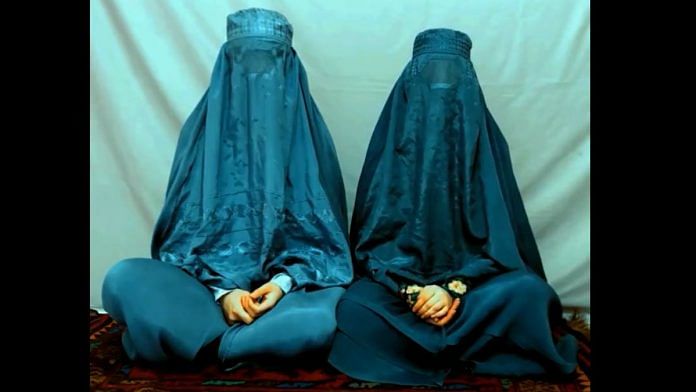New Delhi: Two sisters defied the Taliban’s ban on music in Afghanistan by launching a musical movement on social media called the ‘Last Torch’. The sisters, who concealed their identities with blue burqas, sang about the oppression of women, the imprisonment of dissenters, and the human rights violations under the new regime.
The Taliban seized power in August 2021 and imposed a strict version of Islamic law (Sharia) that curtailed the rights of women across the country. Music was outlawed in the Central Asian country.
In fact, RadioFreeEurope/Radio Liberty reported that it is the only country to do so globally. In July 2023, the Taliban’s so-called morality police even confiscated musical instruments and equipment from the Western city of Herat and set them on fire.
Against this backdrop, the sisters released their first song days after the Taliban took over Kabul. They had never written a poem before the Taliban’s return, the younger sister, Shaqayeq, told the BBC, adding, “This is what the Taliban did to us.”
“That’s why we decided to call ourselves the Last Torch. Thinking that we wouldn’t be able to go anywhere, we decided to start a secret protest from home,” she added.
The sisters have released seven songs so far, all showing them under their blue burqas. Initially, they used lyrics written by others, but they have since started writing their own songs.
One of their songs, sung in Dari and shared on the social media platform ‘X’ (formerly Twitter), expressed the suffering and loss of the women of Afghanistan.
“The last Torch” back.
They sing the oppression, Suffering and loss that the women of Afghanistan is going through. pic.twitter.com/ImEGflz2sX— Nilofar Ayoubi 🇦🇫 (@NilofarAyoubi) August 24, 2023
Their songs have gained a global following, with fans sharing their own renditions of the songs, sometimes in disguise.
According to the BBC, the sisters left Afghanistan last year for their safety.
Within a month of taking control of Kabul, the Taliban renamed the Ministry of Women’s Affairs to the Ministry for Preaching and Guidance and the Propagation of Virtue and the Prevention of Vice. The new ministry operates from the same building that once housed the Ministry of Women’s Affairs, according to media reports.
That same month, the Taliban authorities banned girls from attending schools above class 6, or roughly the age of 13. The regime believes that allowing girls to schools above class 6 does not comply with their interpretation of Islamic religious law.
The following year, the Taliban restricted women’s access to public spaces such as gyms, parks, and swimming pools. In December 2022, they banned women from attending university. That year women were allowed to sit for university examinations, but after the ban, were not allowed to start schooling.
Despite international condemnation, the regime in control of Kabul has yet to relent in its actions.
(Edited by Richa Mishra)
Also Read: Indian delegation discussed access to Chabahar, humanitarian assistance with Taliban, says MEA



